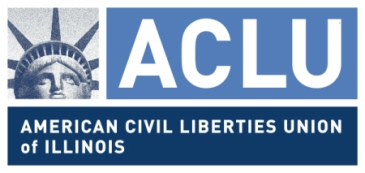Judge Casts Doubt on ACLU Eavesdropping Law Challenge
By aaroncynic in News on Sep 15, 2011 6:20PM
 In the ongoing battle over the legality of recording the actions of a police officer on the street, Judge Richard Posner told a courtroom the ACLU would have a tough fight. The Sun-Times reports Judge Posner as saying, “If you permit the audio recordings, they’ll be a lot more eavesdropping. … There’s going to be a lot of this snooping around by reporters and bloggers. Yes, it’s a bad thing. There is such a thing as privacy.” Posner also suggested that gang bangers would “rejoice” if current laws were changed.
In the ongoing battle over the legality of recording the actions of a police officer on the street, Judge Richard Posner told a courtroom the ACLU would have a tough fight. The Sun-Times reports Judge Posner as saying, “If you permit the audio recordings, they’ll be a lot more eavesdropping. … There’s going to be a lot of this snooping around by reporters and bloggers. Yes, it’s a bad thing. There is such a thing as privacy.” Posner also suggested that gang bangers would “rejoice” if current laws were changed.
At present, it is illegal to make an audio recording of police officers on duty. As a class one felony, violators could potentially earn a prison sentence of up to 15 years. Law enforcement however, have been known to record civilians in almost any given situation. The ACLU is attempting to change this, saying in part that it makes it difficult to monitor police misconduct and advocate for change in policies. Harvey Grossman, legal director of the ACLU of Illinois, said “In order to make the rights of free expression and petition effective, individuals and organizations must be able to freely gather and record information about the conduct of government and its agents -- especially the police.”
Illinois is one of a handful of states that criminalizes the recording of certain public conversations. So far, two challenges to the Illinois Eavesdropping Act have been thrown out. However, as the Huffington Post reports, Boston’s First Circuit Court of Appeals ruled in favor of allowing the videotaping of arrests, calling it constitutionally protected behavior.
While Judge Posner might believe that gang bangers would “rejoice” in making it legal to film police doing their jobs, a criminal organization isn’t going to bat an eye as to whether or not it’s illegal to record a conversation. Cook County Assistant State’s Attorney James C. Pullos had a better argument against making changes to the Eavesdropping Act, saying that police have privacy concerns during investigations. While that may be true, the challenge isn’t over recording police in a sting operation. The challenge is over recording criminal behavior, as in the case of Tiawanda Moore, or recording actions on a public street, such as police conduct during a protest.
The appeals panel is expected to rule on the matter later this year.